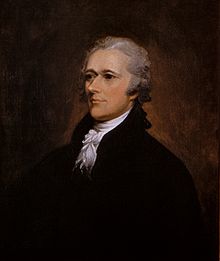National Potato Chip Day
National Pi Day– Why today? Because today is 3.14, the value of π, the ratio of the circumference of a circle to its diameter — which is approximately 3.14159.
1629 – A Royal charter was granted to the Massachusetts Bay Colony.
1757 – British Admiral John Byng was executed by a firing squad on board HMS Monarch for neglect of duty. Byng is best known for the loss of Minorca in 1756 at the beginning of the Seven Years’ War. His ships badly needed repair and he was relieved of his command before he could see to his ships or secure the extra forces he required. He was court-martialled and found guilty of failing to “do his utmost” to prevent Minorca falling to the French. The court martial sitting in judgement on Byng acquitted him of personal cowardice and disaffection, and convicted him only for not having done his utmost, since he chose not to pursue the superior French fleet, instead deciding to protect his own. Once the court determined that Byng had “failed to do his utmost”, it had no discretion over punishment under the Articles of War, and therefore condemned Byng to death.
 Publication of Federalist Paper #69: The Real Character of the Executive written by Alexander Hamilton in 1788.
Publication of Federalist Paper #69: The Real Character of the Executive written by Alexander Hamilton in 1788.
From www.gradesaver.com
Hamilton structures his argument around a three-way comparison of the office of the presidency under the proposed constitution, the king of England, and the governor of New York. Hamilton’s chief concern is to counter claims that the president would have powers commensurate to the English monarch against whom Americans fought a war. He does this in a very specific and methodical way, taking a variety of issues and comparing the powers of the president and the king.
In order to make the argument more relevant to the people of New York, who Hamilton is addressing, he introduces a comparison between the president and the governor of New York as well. Surely, the people of New York would not claim that the president under the proposed constitution is an elected monarch if his powers are roughly commensurate to their own governor.
1794 – Eli Whitney was granted a patent for the cotton gin.
Birthday of Jonathan Luther “John” “Casey” Jones, (March 14, 1864), American railroad engineer
Birthday of Albert Einstein (March 14, 1879), German physicist, noted for his theory of relativity.
March 14, 1883 – Karl Marx died at the age of 64 years. Author of “The Communist Manifesto” recognized as one of the world’s most influential political documents. Now in the public domain, it can be found on many websites including ours: Nextdoor e-store.com
1885 – The Mikado, a light opera by W. S. Gilbert and Arthur Sullivan, received its first public performance in London.
1914 – Henry Ford announced the new continuous motion method to assemble cars. The process decreased the time to make a car from 12½ hours to 93 minutes.
 1967 – The body of U.S. President John F. Kennedy was moved to a permanent burial place at Arlington National Cemetery. In the three years following the Kennedy assassination, over 16 million people visited the original gravesite. The vast number of visitors necessitated the erection of a larger memorial.
1967 – The body of U.S. President John F. Kennedy was moved to a permanent burial place at Arlington National Cemetery. In the three years following the Kennedy assassination, over 16 million people visited the original gravesite. The vast number of visitors necessitated the erection of a larger memorial.
